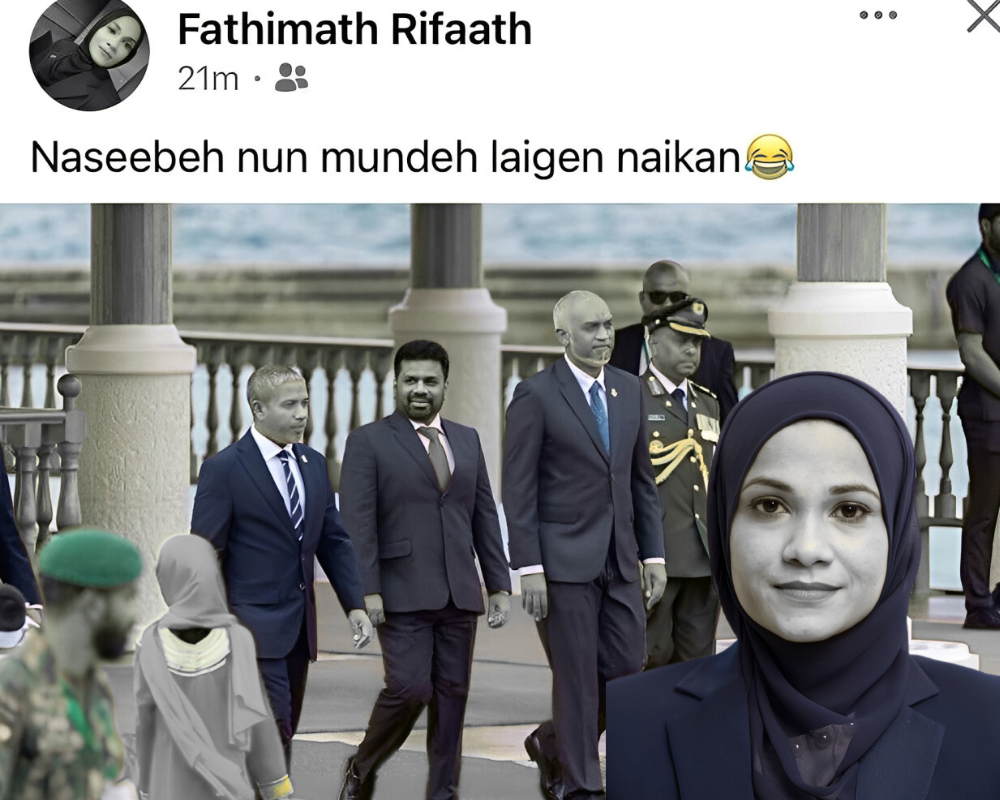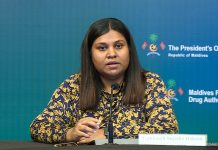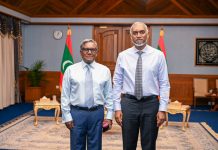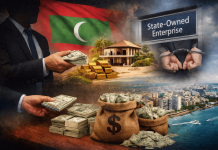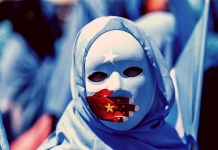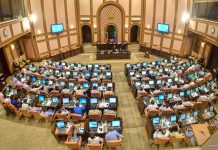Fathimath Rifaath, the Senior Political Director at the Maldives’ Ministry of Homeland Security, has sparked widespread outrage after making a disrespectful remark about Sri Lankan President Anura Kumara Dissanayake’s attire during his official state visit to the Maldives.
In a Facebook post that has since been deleted, Rifaath mocked President Dissanayake’s choice of clothing by writing, “Glad he didn’t turn up wearing a sarong,”
The comment quickly drew strong criticism online, with many social media users denouncing it as inappropriate and disrespectful toward a visiting head of state. The sarong, referenced in Rifaath’s post, is a traditional and respected garment commonly worn by men in both the Maldives and Sri Lanka. Her remark was widely seen as mocking a shared cultural practice, and by extension, insulting a close neighbor and ally.
This is not the first diplomatic embarrassment under President Muizzu’s administration. In January 2024, three deputy ministers from the Ministry of Youth Affairs—Malsha Shareef, Mariyam Shiuna, and Mahzoom Majid—were suspended after making derogatory remarks on social media about Indian Prime Minister Narendra Modi. The repeated nature of such incidents has raised serious concerns about the professionalism and diplomatic awareness of government officials.
Despite the backlash, Rifaath has not issued a public apology, and the government has not announced any disciplinary action against her.
The controversy highlights a broader issue within the administration—lack of clear social media guidelines and an apparent disregard for the sensitivities of international diplomacy. As a small island nation that relies heavily on strong regional partnerships, the Maldives cannot afford repeated diplomatic blunders, especially when they stem from the careless actions of senior government figures.
With Sri Lanka being a close partner in trade, education, and health cooperation, maintaining mutual respect is crucial. Incidents like this risk undermining trust and damaging relationships that are vital to the Maldives’ foreign policy and regional standing.
As of now, the Ministry of Homeland Security and the President’s Office have not commented on the issue. The question remains whether President Muizzu’s administration will take concrete steps to prevent such controversies in the future—or continue to allow officials to jeopardize diplomatic relations with careless remarks.

